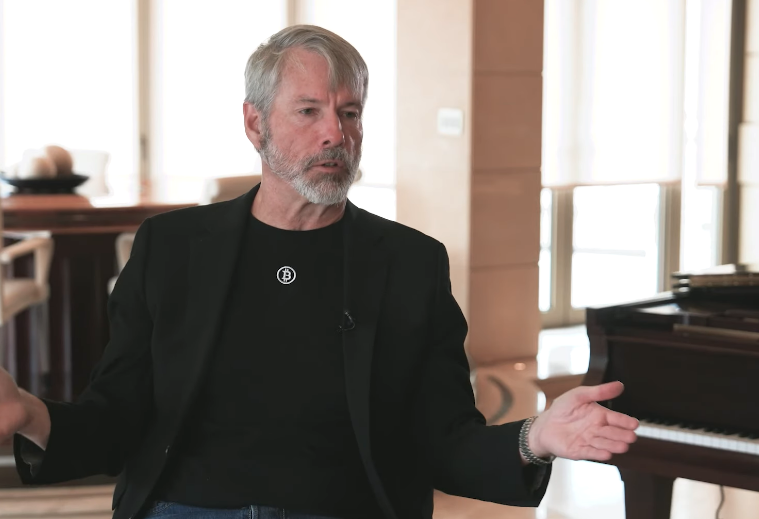
MicroStrategy’s executive chairman, Michael Saylor, has been slammed over his latest comments recommending Bitcoin custodianship through “too big to fail” financial institutions rather than using self-custody — something he once championed.
Saylor controversially suggested Bitcoiners have nothing to lose by transferring their Bitcoin BTC
Saylor is seen as a champion for Bitcoin, and his comment appears to be a stark contrast to his previous support for crypto self-custody.
Anybody thinking a state-sanctioned Bitcoin seizure is possible is a “paranoid crypto-anarchist,” added Saylor when asked whether the United States government would strip Bitcoin holders of their self-custody rights like how holding gold was made illegal in 1933.
“It’s a myth and a trope that goes on over and over again,” Saylor said.
“There’s just a lot of fear that’s unnecessary.”
Instead of relying on hardware wallets, Saylor said it would be better to rely on “too big to fail” banks that are “engineered to be custodians of financial assets.”
His apparent U-turn on self-custody wasn’t received well by many Bitcoiners.
“Saylor is on a mission to relegate Bitcoin into an investment petrock and halt its usage as a currency,” said “Sina” — a founder of Bitcoin custody and security firm 21st Capital.
OG Bitcoiner and author of “Bank to the Future,” Simon Dixon, meanwhile, speculated Saylor is undermining the importance of self-custody because it wouldn’t benefit MicroStrategy’s long-term plan to turn into a Bitcoin bank and offer collateralized loans.
“Bitcoin anarchists: keep helping people gain freedom from banks, governments & central banks,” Dixon said.
John Carvalho, CEO of Bitcoin payments firm Synonym, also criticized Saylor’s change in tune, highlighting that he used to claim “Bitcoin is hope” for everyone.
“I am curious what exactly that means if we must discount the ‘paranoid crypto anarchists’ and their ‘tropes’ as salesmen with ulterior motives.”
Shortly after FTX crashed in November 2022, Saylor claimed Bitcoin self-custody prevents powerful custodians from corrupting the Bitcoin network:
“In systems where there is no self-custody, the custodians accumulate too much power and then they can abuse that power.”
“If you can’t self-custody your coin, there’s no way to establish a decentralized network,” Saylor added.
Saylor even once recommended people to remember their 12-word seed phrase and tell people to “f*** themselves” if they come for you.
